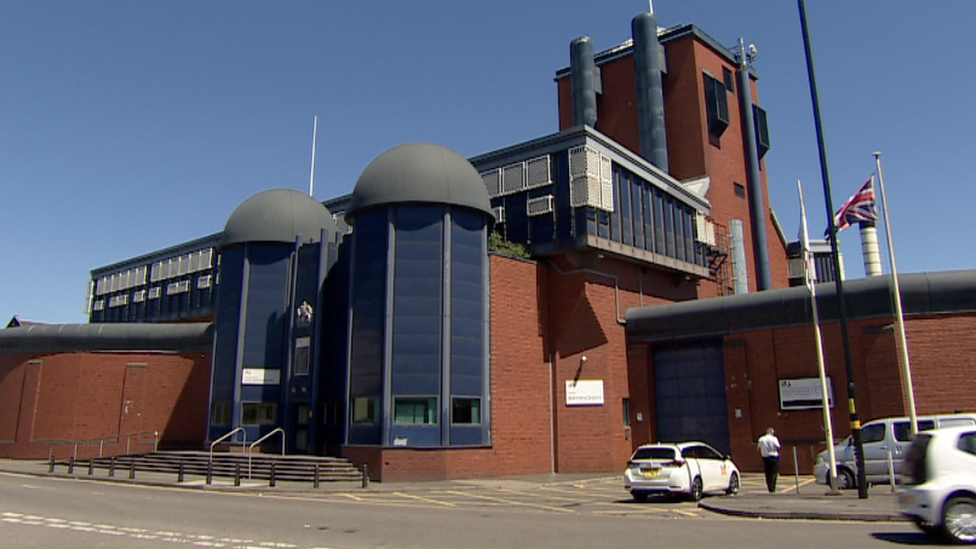HMP Birmingham: Scanner funding failure 'inexplicable'
- Published
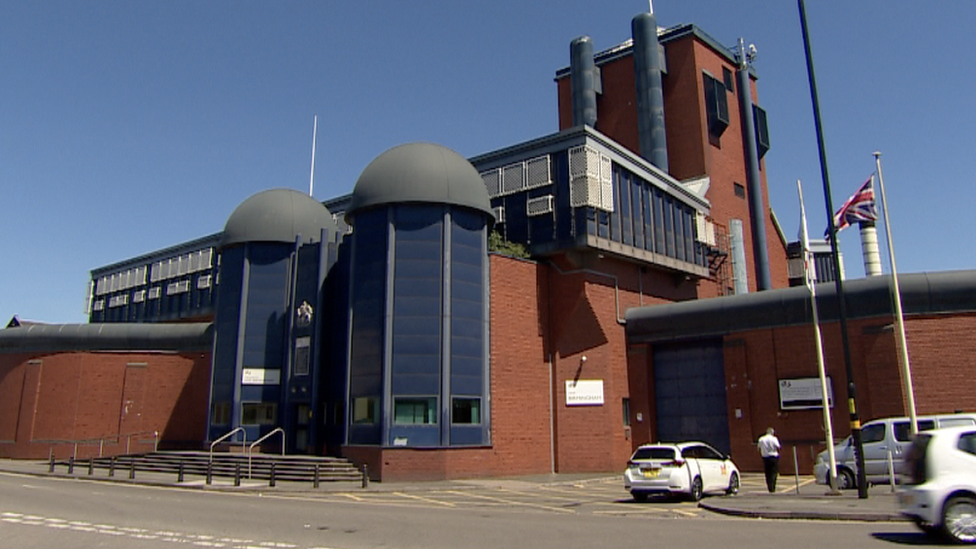
The Prison Service permanently took back control of HMP Birmingham earlier this year
A troubled jail's failure to secure funding for a body scanner to help stop drugs being smuggled in is "inexplicable", the chief inspector of prisons has said.
A progress review inspection has found a "mixed overall picture" at crisis-hit HMP Birmingham.
The prison was taken back into public ownership after private company G4S had its contract terminated.
The latest inspection said the prison faces a "long journey of recovery".
In August 2018 Peter Clarke, chief inspector of prisons, said the Winson Green jail was the worst he had come across.
Mr Clarke said the scale of the task to improve the treatment and conditions for prisoners was "huge".
The independent review of progress carried out by HM Inspectorate of Prisons in May followed up nine of 59 recommendations.

HM Inspectorate of Prisons findings:
The prison had worked "exceptionally hard" to address violence. Levels had decreased but remained considerably higher than average for similar prisons
There was no meaningful progress in work to support the large number of sex offenders to address their offending behaviour
There was insufficient progress in tackling anti-social behaviour and in improving work, training and education for most prisoners
Reasonable progress was made in tackling violence, drug use and squalor evident in an inspection last summer

The report said that while inspectors no longer observed overt drug use on the wings, one in four prisoners were still testing positive for drugs.
It added a good range of actions had been implemented, including a new team to carry out "suspicion-based searching".
However, it added: "The need for electronic body scanners to identify contraband concealed by prisoners on entry to the prison and additional mail scanning equipment to detect letters impregnated with illegal substances had been identified.
"However, to date the prison's bids for funding for this equipment had been unsuccessful."
Mr Clarke said: "I found it inexplicable that the prison had been unable to secure funding for equipment such as a body scanner to help them stop drugs entering the prison."
'Likely to fail'
Last year's inspection found the prison was "fundamentally unsafe", with many prisoners and staff living and working in fear.
But following the latest visit, Mr Clarke said relationships between staff and prisoners had improved and the prison felt "more ordered and controlled".
Of the nine recommendations looked at, inspectors found reasonable progress had been made in five and insufficient progress in three.
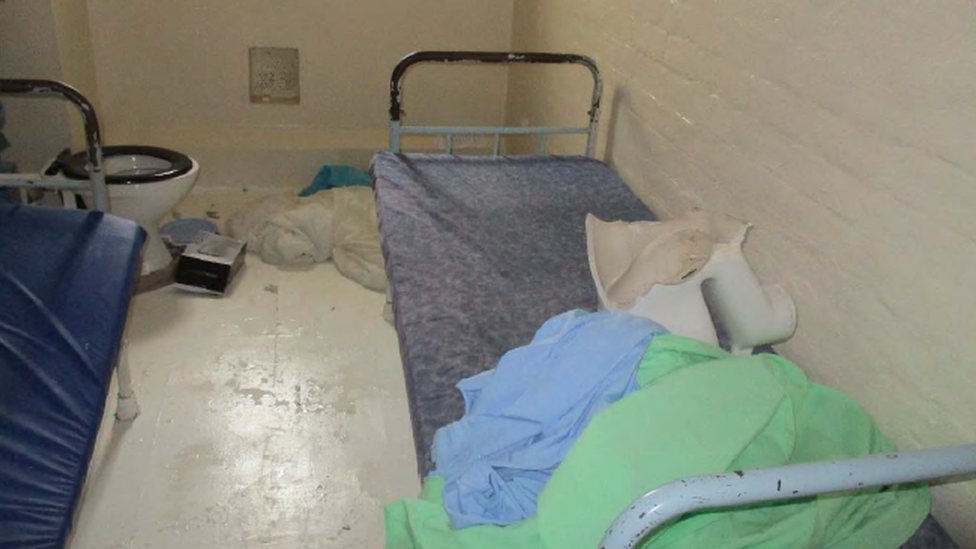
An inspection in 2018 found flooded and damaged cells
It also found no meaningful progress had been made over a recommendation to implement a strategy to help sex offenders address their behaviour.
Mr Clarke warned its sex offenders strategy was "unrealistic and likely to fail" as it had no support from the wider HM Prison and Probation Service.
He said: "There is no doubt that the prison faces a long journey of recovery. It is very clear that the governor, through his vision and very visible leadership, has energised the staff and undoubted pride and optimism are emerging around the prison."
Roger Swindells, chair of the prison's independent monitoring board, said plans put in place to support sex offenders, needed to be "monitored and challenged".
He said there had been "significant improvement in the way in which acts of violence are now investigated" and added the board could see "visible and tangible efforts to both disrupt the supply of drugs into the prison".

Follow BBC West Midlands on Facebook, external, on Twitter, external, and sign up for local news updates direct to your phone, external.
- Published1 April 2019

- Published4 December 2018

- Published20 August 2018
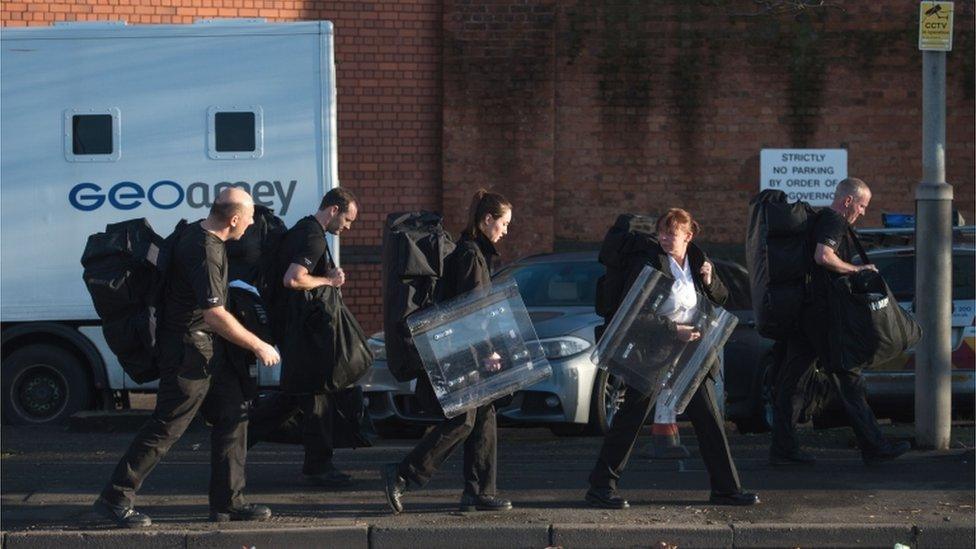
- Published20 August 2018
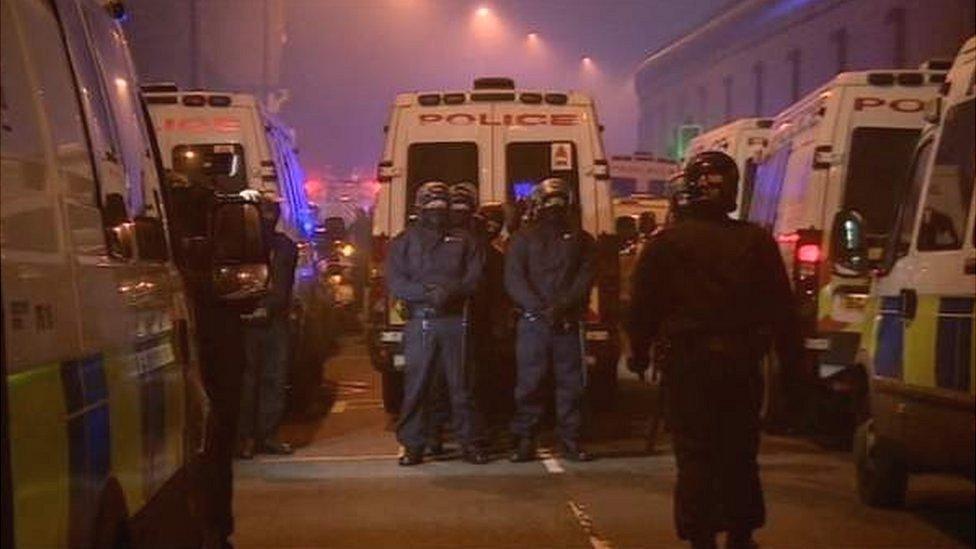
- Published3 July 2018
